 Petzlover
Petzlover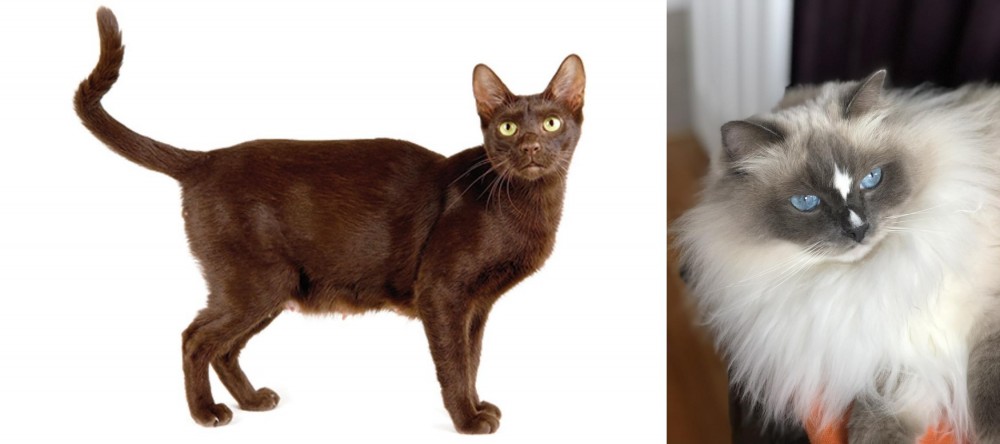 Havana Brown is originated from United Kingdom but Ragdoll is originated from United States. Both Havana Brown and Ragdoll are having almost same weight. Havana Brown may live 3 years less than Ragdoll. Both Havana Brown and Ragdoll has same litter size. Havana Brown requires Low Maintenance. But Ragdoll requires Moderate Maintenance
Havana Brown is originated from United Kingdom but Ragdoll is originated from United States. Both Havana Brown and Ragdoll are having almost same weight. Havana Brown may live 3 years less than Ragdoll. Both Havana Brown and Ragdoll has same litter size. Havana Brown requires Low Maintenance. But Ragdoll requires Moderate Maintenance
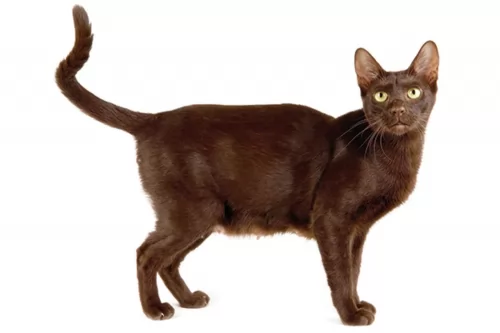 The rare Havana Brown cat seems to be a result of a planned breeding between Siamese and domestic black cats.
The rare Havana Brown cat seems to be a result of a planned breeding between Siamese and domestic black cats.
It was in the 1950s that cat fanciers in the UK became the early breeders. These breeders called themselves the Havana Group. They created the foundation of the modern-day Havana Brown cat.
These breeders managed to produce chocolate shaded kittens which became known as the Chestnut Brown Oriental. Kittens arrived in the US and were crossbred with the Chocolate and Seal Point Siamese to produce chocolate-colored kittens.
In 1964, the Havana Brown was accepted for Championship status by the Cat Fanciers Association.
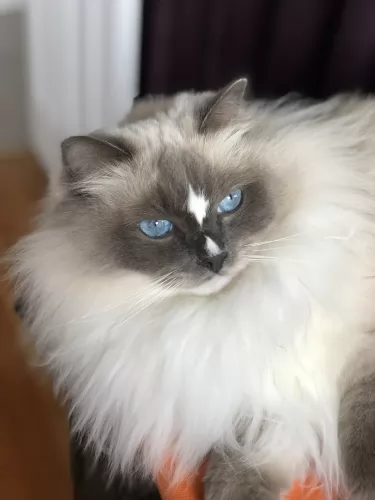 It was in the 1960s that a regular domestic longhaired cat with white fur produced several litters of cats. There was one litter where the kittens with a docile temperament, seemed to go limp when picked up.
It was in the 1960s that a regular domestic longhaired cat with white fur produced several litters of cats. There was one litter where the kittens with a docile temperament, seemed to go limp when picked up.
Anne Baker set out to start a breeding program and all Ragdolls are descended from Baker's cats. In fact, the cat credited as the original Ragdoll was a cat with the name Josephine, and Ragdolls are sometimes called ‘the daughters of Josephine.
Baker set up her own registry, the International Ragdoll Cat Association. The IRCA still exists, but another pair developed the Ragdoll standard that is accepted by major cat registries. Today. The biggest international Ragdoll breed club is the Ragdoll Fanciers' Club International.
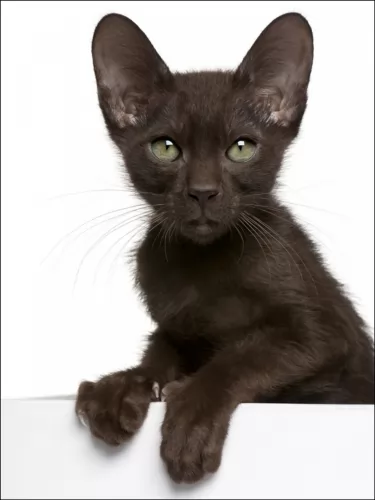 The Havana Brown is a medium-sized cat, being somewhat slender and weighing between 3 and 6kg. The body is long and muscular and the cat has a beautiful brown short to medium-length coat.
The Havana Brown is a medium-sized cat, being somewhat slender and weighing between 3 and 6kg. The body is long and muscular and the cat has a beautiful brown short to medium-length coat.
The coat color is in fact a rich reddish-brown shade. The ears are fairly large and round-shaped and the oval-shaped eyes are a beautiful green.
The Havana Brown is an intelligent, playful, curious cat who enjoys being in the company of its human family. They tend to gravitate towards one favorite family member.
They’re cats that don’t like being left alone for long periods of time. They get on well with children and he also won’t object to becoming friends with the family dog as well.
Friendly though they may be, they also enjoy spending some time on their own. Individual personalities vary but most are playful and talkative.
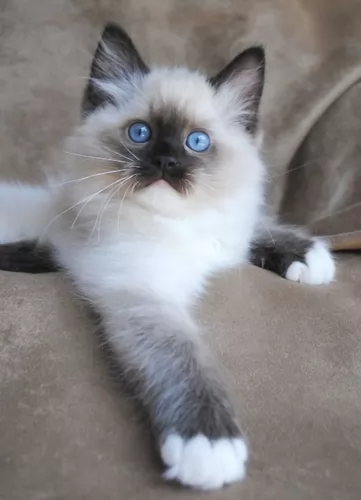 The beautiful Ragdoll cat is a large, heavy-boned cat. Sometimes they can be 9kg in weight. It has a soft, silky coat that can be semi-long to long.
The beautiful Ragdoll cat is a large, heavy-boned cat. Sometimes they can be 9kg in weight. It has a soft, silky coat that can be semi-long to long.
The cat has remarkable blue eye and the beautiful silky coat comes in several shades such as cream point, chocolate point, seal point, and others.
The ears are medium-sized and, the legs long and strong and the oval-shaped eyes are blue. The cat is known as a pointed breed, which means that the body is lighter in color than the points.
Ragdolls are casual, even-tempered, laid-back kind of cats. They are playful but not particularly energetic so you won’t find these cats leaping onto top perches such as what other cats do.
These docile cats love to be petted and pampered and carried around. It literally goes limp with pleasure at being loved and pampered by its human companions. He’s such a friendly cat who, much like a dog, will even greet you at the door and learn to play some games.
This amicable cat gets on well with children and other pets in the home, making a splendid family pet and he can even learn to walk on a leash.
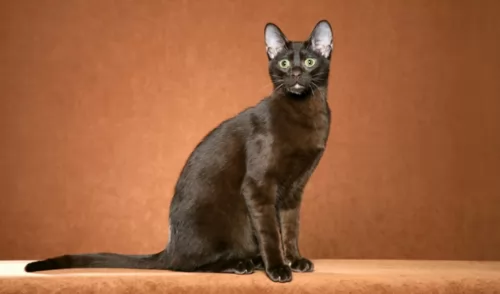 There is a good reason why the Havana Brown cat is so popular. People love the unusually rich brown coat which always has a gleam to it.
There is a good reason why the Havana Brown cat is so popular. People love the unusually rich brown coat which always has a gleam to it.
They also love that this chocolate-colored cat has a wonderful personality and can be a solid companion for humans. So long as you don’t leave him alone for a long time on his own, as that is part of his charm – wanting to be constantly involved with his human family.
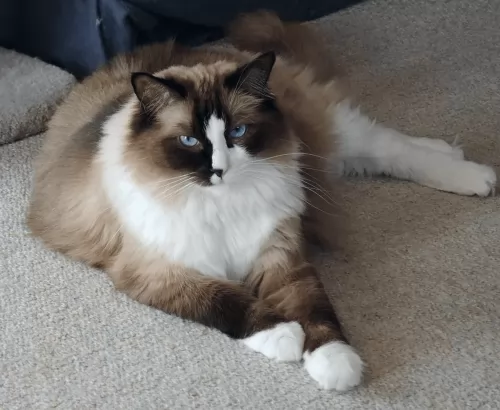 The Ragdoll really is a splendid cat for any family that loves pets. They are such loving cats and adore being pampered by their human owners.
The Ragdoll really is a splendid cat for any family that loves pets. They are such loving cats and adore being pampered by their human owners.
These cats get on well with children and other pets, and because they are such mild-mannered cats, you never find a Ragdoll striking out in anger. That is why it is so important that children be taught kindness and gentleness with animals like the Ragdoll and not to take advantage of its good nature.
Playful and entertaining, the Ragdoll is bursting with his own unique personality – a super feline companion for the whole family.
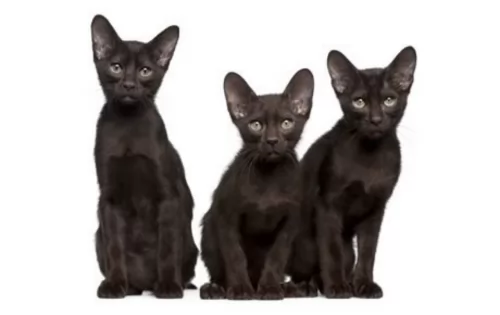 There are no known genetic diseases associated with this breed. They may have a bit of a higher occurrence of gingivitis than other cat breeds, and this thought to come from them having their Siamese ancestry.
There are no known genetic diseases associated with this breed. They may have a bit of a higher occurrence of gingivitis than other cat breeds, and this thought to come from them having their Siamese ancestry.
Beware of bladder stones with your cat which can start at any age. The stones can start off small but can grow larger, rubbing against the bladder walls and resulting in inflammation.
Bladder stones can also lead to blockage of the urethra so that your cat isn’t able to urinate. There are symptoms to indicate your pet may have bladder stones and these can be straining to urinate, painful and little urination, urinary tract infections, and blood in the urine.
This is a time when you want to get your pet to the vet just as soon as possible.
Also, be on the watch for eye infections. Conjunctivitis is one of these to look out for but there are other eye infections your cat can experience. They can come about because of an upper respiratory infection that spreads to the eyes, but they can be caused by any number of things such as bacteria, parasites, and viral infections.
You’ll notice your cat pawing at his eyes and there may even be redness, discharge, and swelling. You vet will be able to treat eye infections with ointments and eye drops.
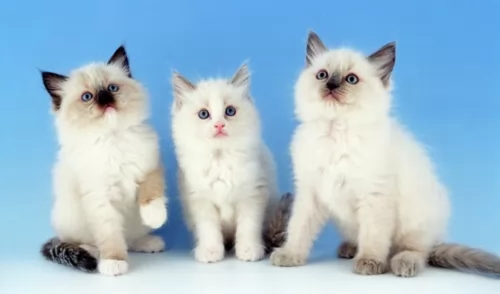 All cats, whatever the breed, can succumb to any one of the many cat diseases there are. A high-quality diet, a loving, caring lifestyle, the appropriate vaccines and parasite treatment can all help to keep your Ragdoll as happy and healthy as possible.
All cats, whatever the breed, can succumb to any one of the many cat diseases there are. A high-quality diet, a loving, caring lifestyle, the appropriate vaccines and parasite treatment can all help to keep your Ragdoll as happy and healthy as possible.
Ragdolls are generally healthy cats but you may want to look out for bladder stones. Another disease to watch for is a heart condition known as hypertrophic cardiomyopathy. This heart disease causes thickening of the heart muscle.
While the disease is usually found in older cats, there is also a juvenile form that affects younger cats, and often young Ragdolls.
Sometimes there aren’t symptoms, and if your cat has labored breathing, loses his appetite or has vomiting, you may need to get your Ragdoll to the vet who will listen to his heart for abnormalities.
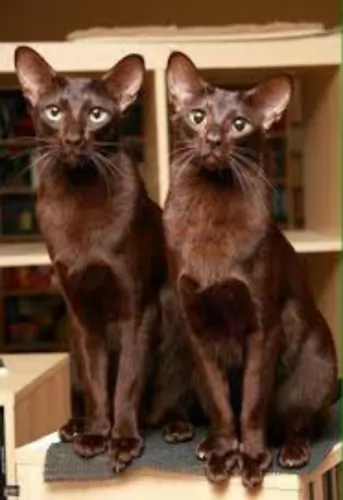 With the cat’s short coat, he experiences little shedding so very little grooming is required. A gentle brush once a week will be enough. These cats love attention and submit easily to a brush and body rub with a soft rubber brush.
With the cat’s short coat, he experiences little shedding so very little grooming is required. A gentle brush once a week will be enough. These cats love attention and submit easily to a brush and body rub with a soft rubber brush.
Check inside the mouth as periodontal disease is a problem with cats. You want to make sure that there aren’t any bad teeth as this can cause a lot of pain.
A vet can also be useful in examining your cat and pinpointing problems.
Check the inside of the ears too because they can become somewhat clogged with wax and dirt. If you don’t want to probe inside the cat’s ears with a cotton ball with warm water and apple cider vinegar, you can take your cat to the vet or to a professional cat groomer.
Keep the litter box of your cat spotlessly clean as these cats are fussy with cleanliness.
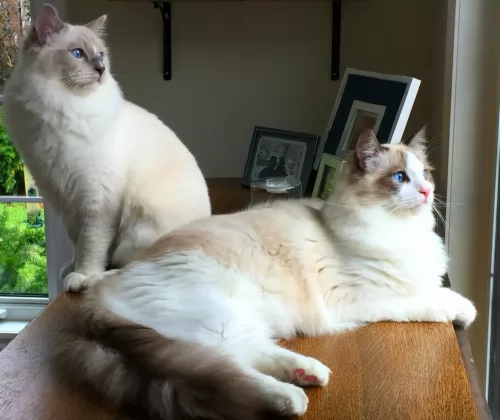 Even though the Ragdoll’s coat is long and silky, it’s the kind of coat that doesn’t require too much maintenance. Certainly, you’ll want to comb and brush it once a week.
Even though the Ragdoll’s coat is long and silky, it’s the kind of coat that doesn’t require too much maintenance. Certainly, you’ll want to comb and brush it once a week.
The other grooming he requires is regular nail trimming.
Understand your Ragdoll’s eating habits. Remember cats are carnivores and this means that their diet has to be made up of meat. Food puzzles are great for these cats but whatever snacks and treats you give your Ragdoll, make sure that they are healthy for a cat and don’t give your cat digestive problems.
Provide your Ragdoll with a litter tray and make sure to remove the feces every single day.
Cats are prone to periodontal disease, but while it has become the latest trend to brush your pet’s teeth, this can be upsetting and traumatic for a pet. A good diet can help to keep teeth healthy. Your vet can look inside your pet's mouth to see if any teeth need attending to.